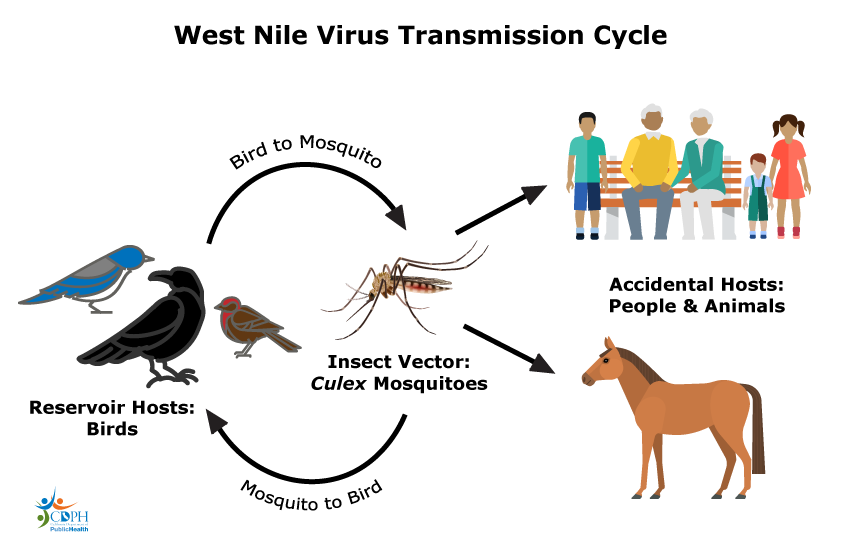West Nile Present in State but No Infections Reported Yet

No human cases of West Nile Virus have been reported in 2019, and the California Department of Public Health hopes to keep it that way as warmer weather arrives amid the spring drizzle. “West Nile virus activity in the state is increasing,” said State Public Health Officer Dr. Karen Smith, “so it is important to take every possible precaution to protect against mosquito bites.” The state’s “fight the bite” tips include draining standing water, being aware of mosquitoes in the early morning and evening, and using insect repellent.
Effective versions of repellent block the mosquitoes’ ability to “smell” you, rather than killing the bugs, the health department said in a press release. Among them are EPA-registered repellents like DEET, picaridin, oil of lemon eucalyptus, or IR3535 (aka ethyl butylacetylaminopropionate). (See here for more.) The carriers, most often the common Culex mosquito, are active early in the morning and in the evening.
If infected, symptoms in humans range from fever to central nervous system effects, such as encephalitis or meningitis. No vaccine or antiviral medication is available. Mosquito traps in seven counties – Riverside, Fresno, San Joaquin, Tulare, Kern, and San Bernardino – reported a total of 220 disease-carrying mosquitoes this year.
Dead birds are often the first indicators of the presence West Nile, and birds and mosquitoes are known to transmit the virus back and forth. Three counties have so far reported five infected wild birds: San Joaquin, Orange, and San Diego. Sentinel chickens, or flocks of hens kept for testing purposes, have so far come up negative for West Nile virus. Dead birds should be reported at the state’s West Nile site.
Human cases spiked in 2014, according to the state website, when 801 people were infected. Deaths spiked in 2015 when 53 people died of West Nile. Last year, 217 people contracted the disease, and 11 died. As of June 19, the virus was not in Santa Barbara County’s tracking metrics, including people, horses, and birds.



